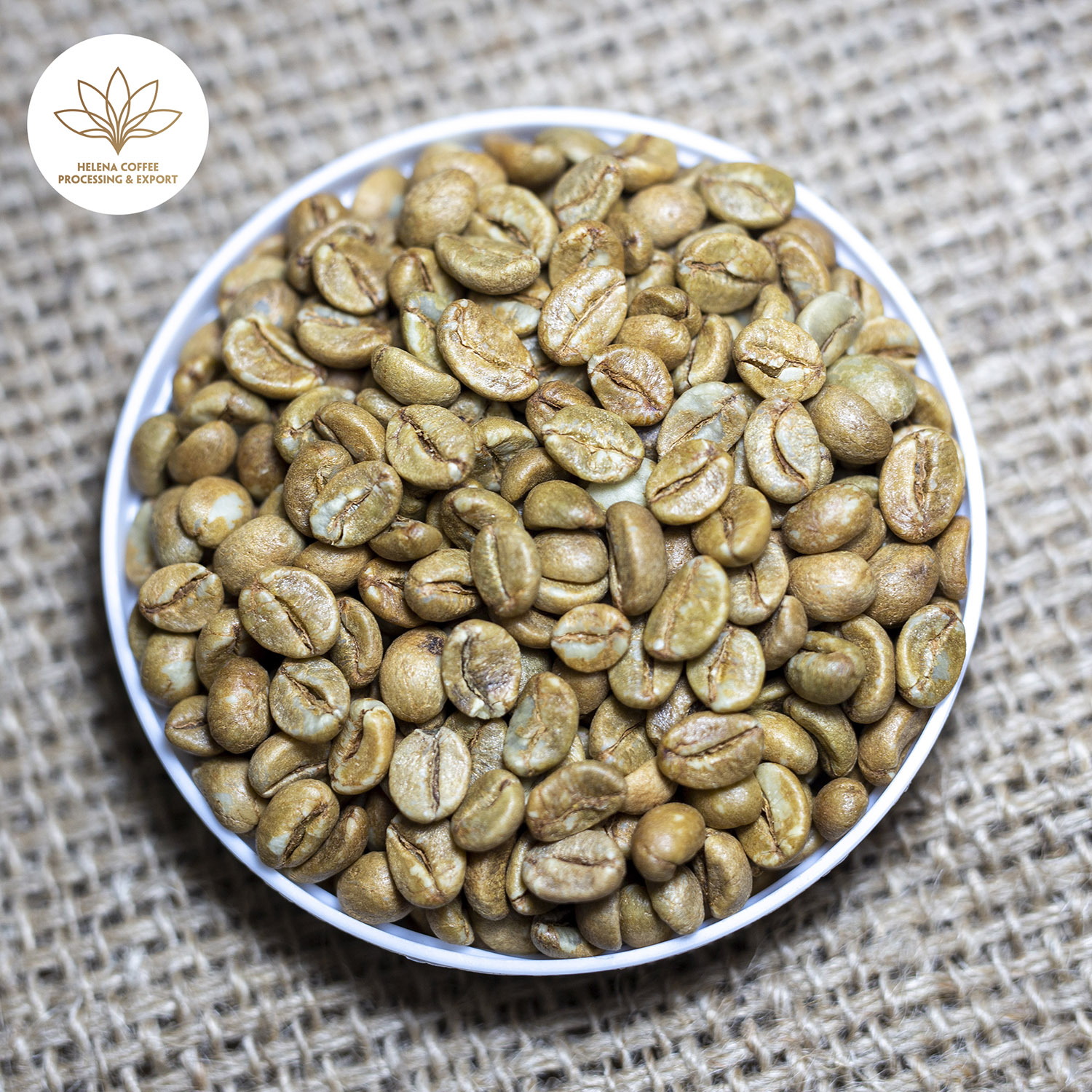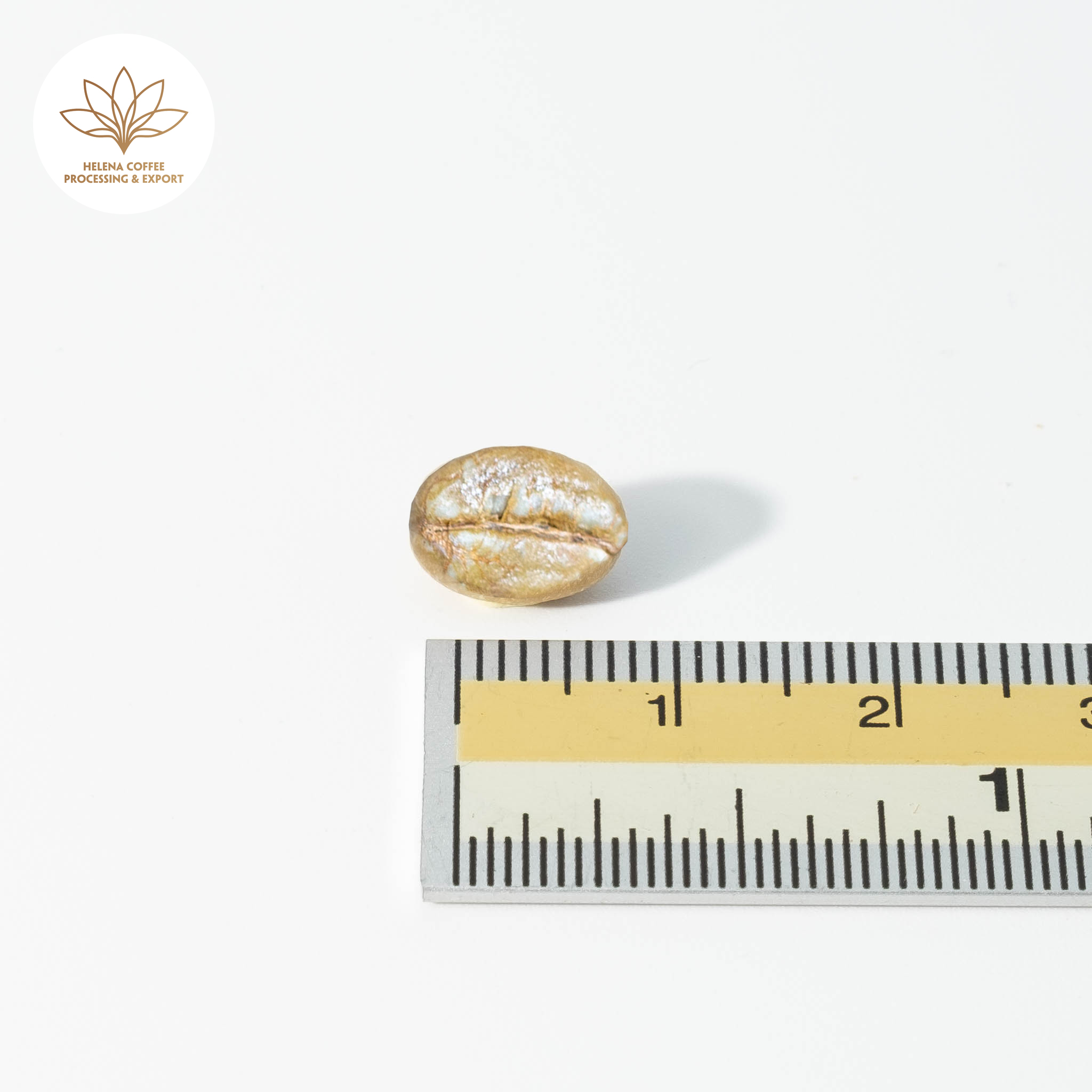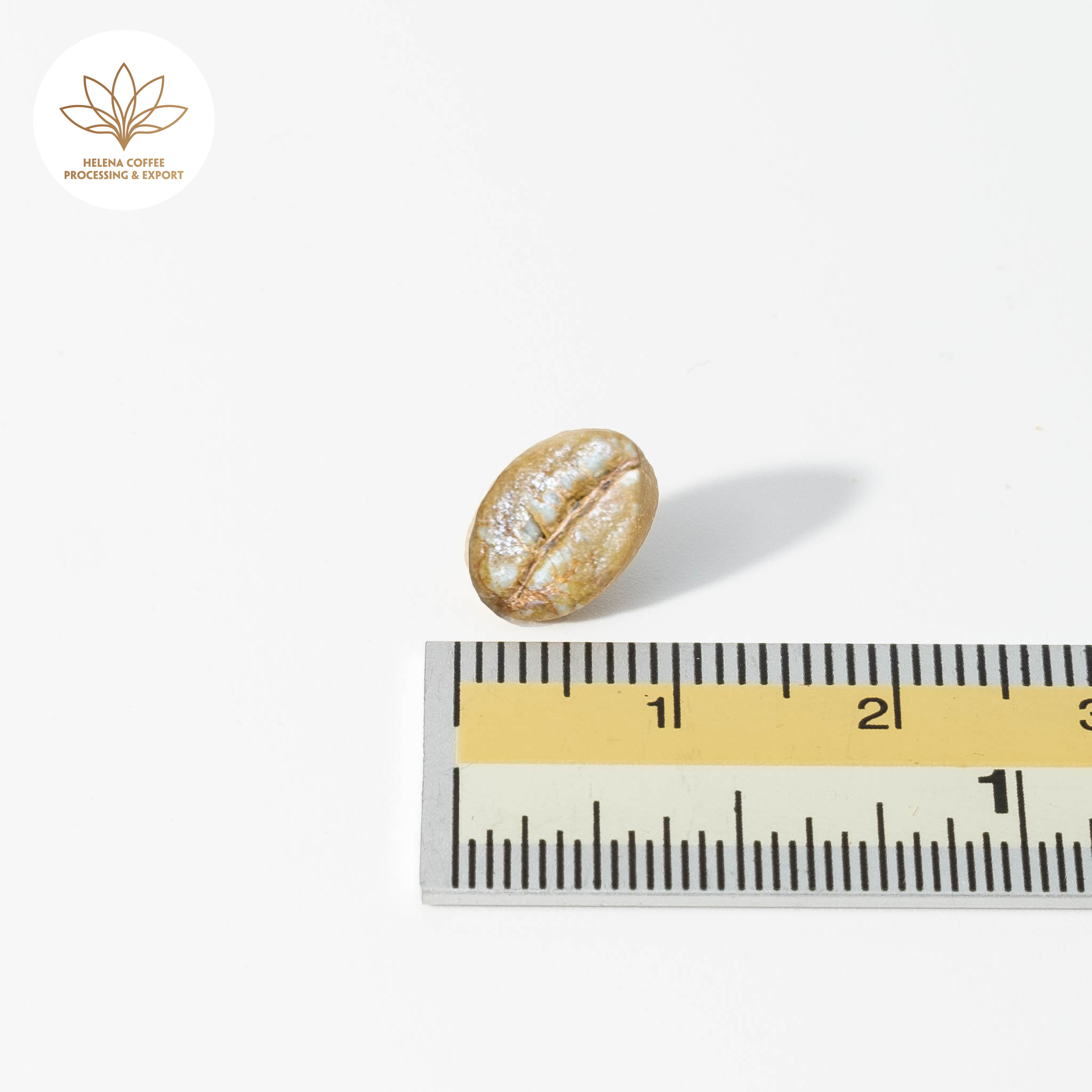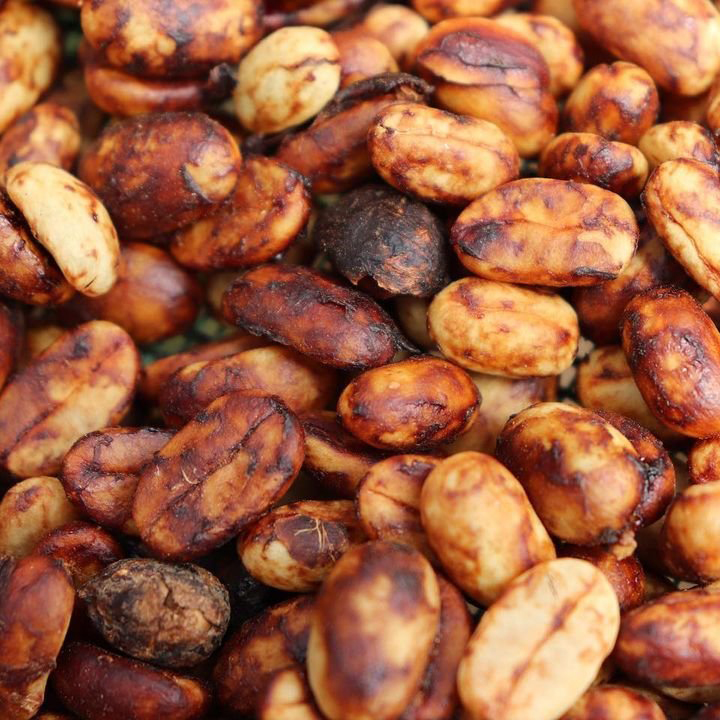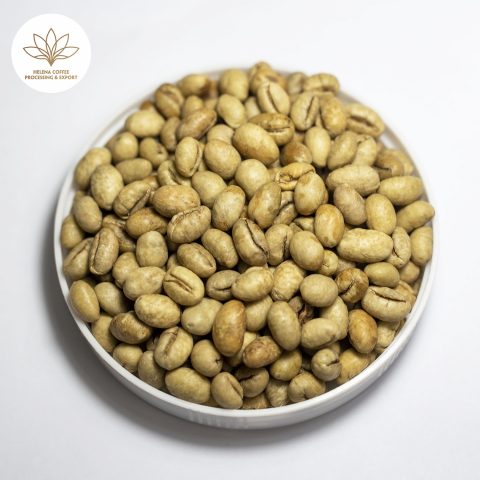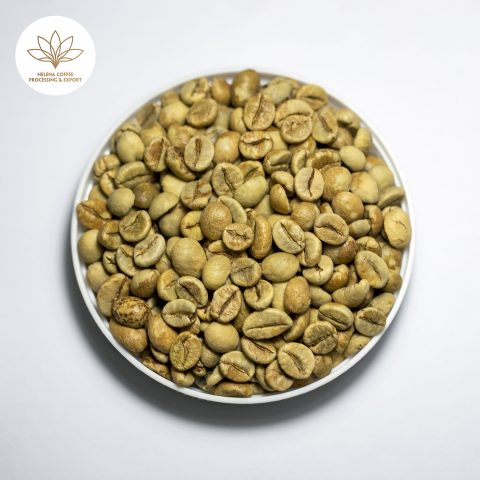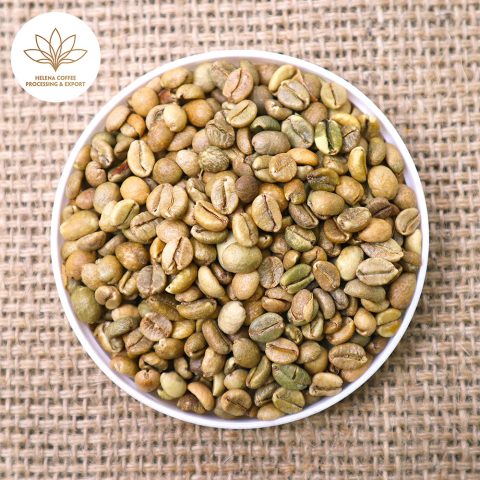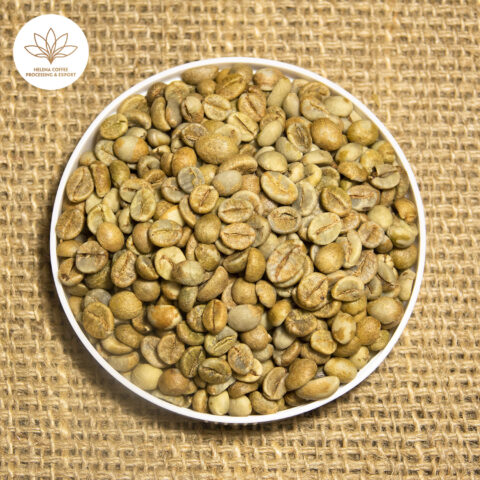Vietnam Robusta Honey Processed Coffee (SCR18, SCR16)
- Home
- Products
- Vietnamese Robusta Green Coffee Beans
- Vietnam Robusta Honey Processed Coffee (SCR18, SCR16)
Vietnam Robusta Honey Processed Coffee (SCR18, SCR16)
$5.00 $4.29
- Variety: Robusta
- Region: Daklak – Vietnam Origin
- Elevation: 800m
- Processing: Honey Process
- Ripe Rate: 99-100%
- Moisture: 12,5%
- Foreign Matter: 0.1%
- Black: 0.1%
- Broken: 0.5%
- Rate on Sieve: Min 90%
- Bean size (Sieve): S16, S18
- Capacity: 3000 tons/year
- Price per kilogram: $/kg
49967 in stock



Coffee Beans Product Information
Vietnam Robusta Honey Processed Green Coffee Beans is a version of those specials. The retention of more mucilage during primary processing results in a beautiful dark red color when dried, deepening the sweetness that penetrates the skin, and the taste is more refined and post-deposition.
Honey method, originated in Costa Rica because of its effectiveness in improving coffee quality. This method is widely applied in Central American countries and presents a solid foundation.
The word “honey” is used in this term to refer to the coffee processing method and is sometimes misleading. No honey ingredients are used in all stages of the process.
1. Vietnam Honey Robusta Coffee – Sweet taste makes a difference.
1.1. What exactly is the Robusta honey coffee process?
The honey coffee process method removes the harvested coffee fruit from the skin and part of the inner flesh, and the beans are dried on a drying rack or yard for a specific time. The remaining pulp surrounding the kernel accelerates the fermentation process compared to natural (dry/natural) processing methods.
Mucus is rich in acids and sugars. Also, because of the addition of this part, the coffee beans have a balanced overall sweetness, which is superior to other methods. When done correctly and on schedule, the Honey prep method creates a beautiful property, perfecting dry prep and wet prep.
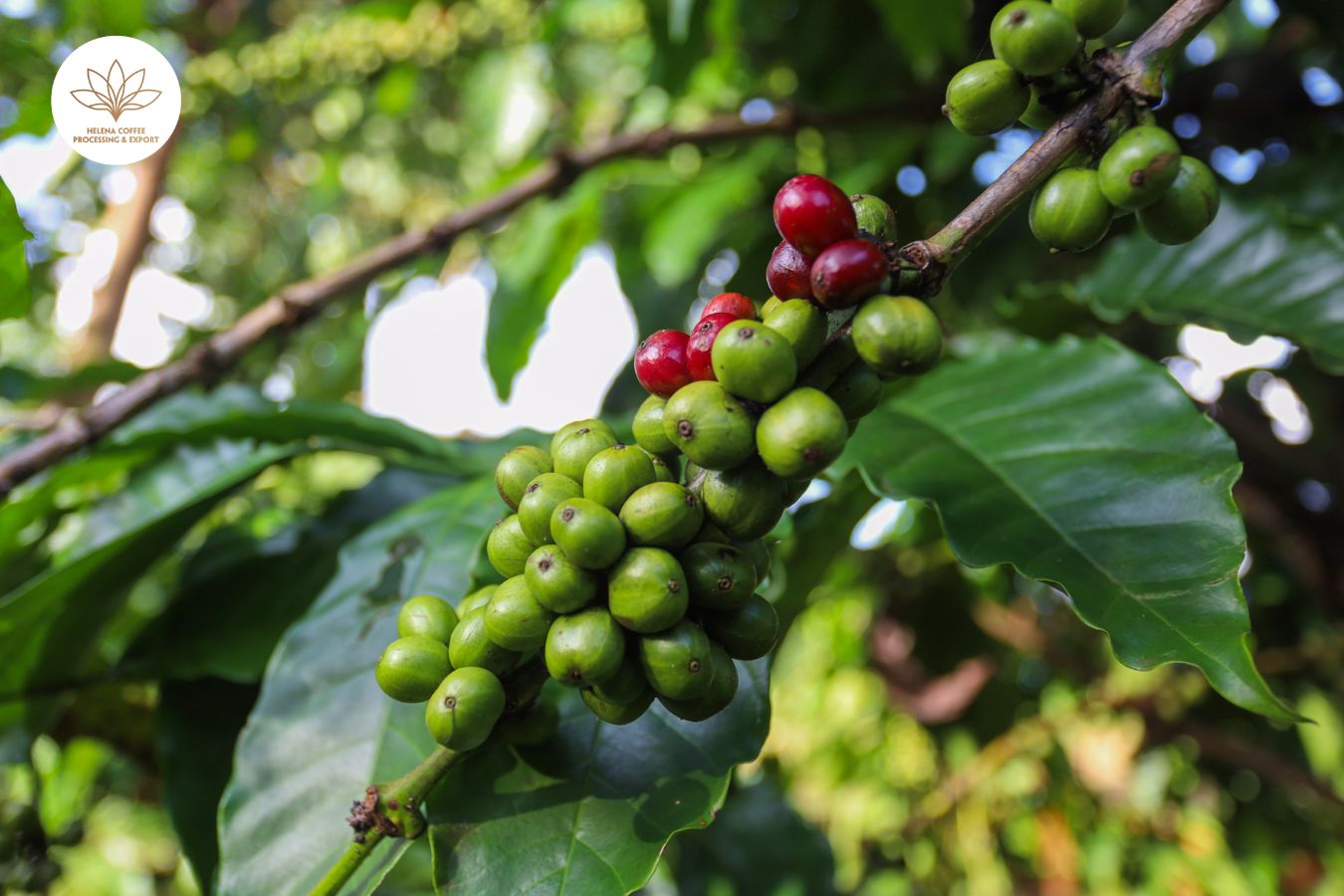
The drying step is the decisive step for the semi-natural method. In this way, it is possible to produce different flavors due to the various effects of fermentation. The drying process is critical as there is a high risk of mold growth and defects, so the beans must be turned regularly until the desired moisture content is reached and protected from insect damage.
Coffee farmers establish their rating system for the degree of processing in their harvests. A grading scale is used, which indicates the amount of mucilage remaining on the kernel, usually 40%, 60%, 80%, and 100%. This system is not officially recognized, as it is relative, and the primary purpose is to help farmers determine their mucus levels.
1.2. Yellow honey, White honey, Red honey, and Black honey in Vietnam Robusta coffee
Processed Honey Robusta in general and honey-processed robusta in particular. It is sometimes mistakenly believed that this method mixes honey with green coffee. But, when the coffee fruit is ripe, the sugar level reaches the highest level, and the fruit will be peeled and retain the mucus layer. Coffee will be sun-dried on the rigs without going through any more stages.
Based on the fermentation stage and the percentage of the mucilage retained, the processor divides Robusta Honey into many different types. The following types are yellow honey, red honey, and black honey.
When people hear the name “Robusta Honey,” they sometimes think this method involves mixing honey with coffee. But in reality, Robusta Honey coffee is made from Robusta beans that have been processed using the honey method. People call it “Robusta-Honey” or “honey coffee” because its color is similar to that of honey, which is yellowish.
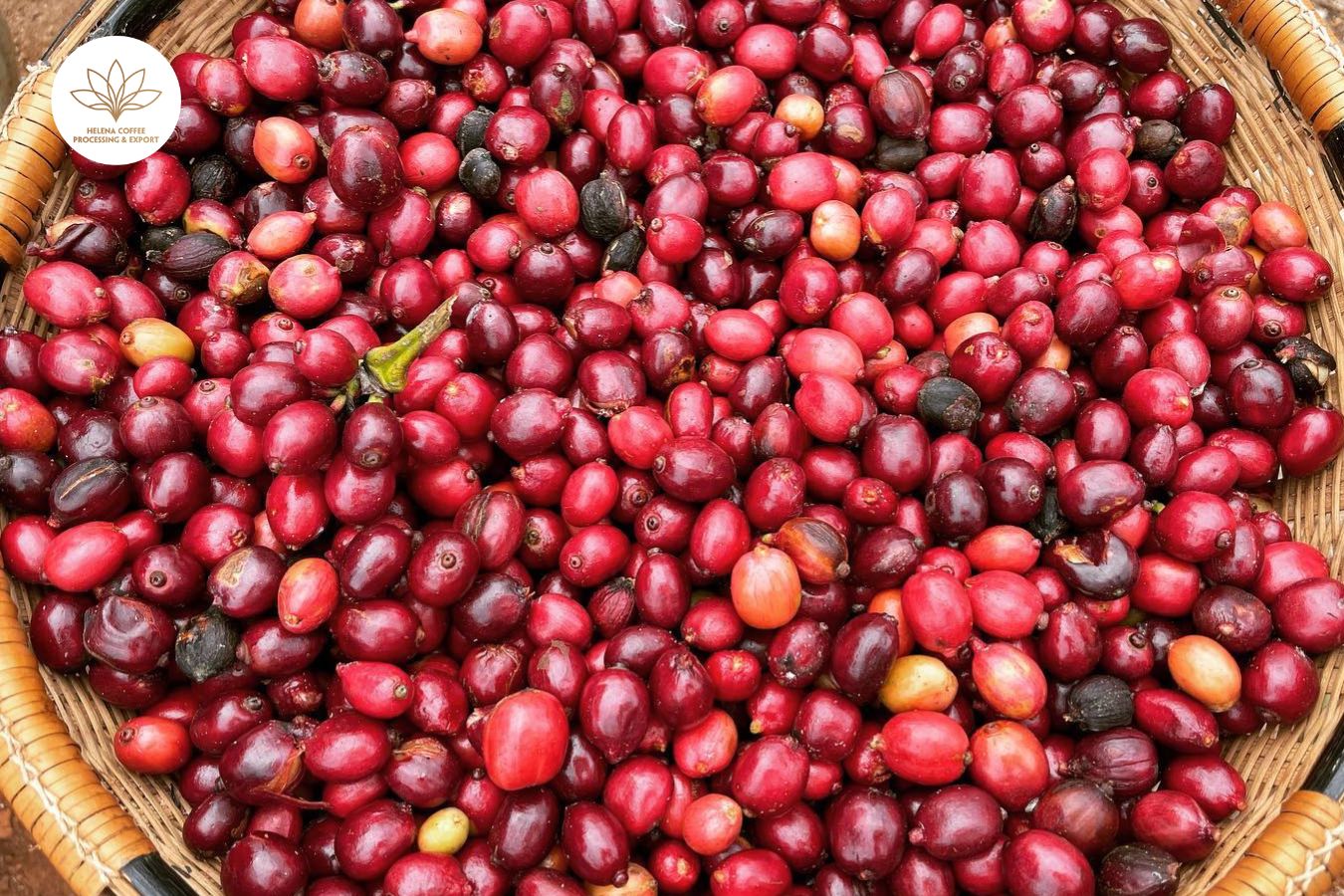
So, the name of Robusta-Honey coffee can also change depending on how much the rice husk is colored. For example, white honey will be called “white honey,” honey that is dark brown will be called “black honey,” and honey that is reddish brown will be called “red honey.” The color of honey depends on how much of the mucus layer is left on the peel. More or less rice while it was being made.
Honey-processed Robusta coffee is also processed differently from other types of coffee because it needs to keep its yellow color. Usually, coffee is processed wet, which means that all of the mucus on the surface of the coffee beans is removed, and the coffee is allowed to ferment.
1.3. Honey processed coffees quality
However, the honey-honey coffee method often leaves some or all of the mucus on the coffee bean’s surface while dries. This method does not need fermentation, so the coffee beans still have soft shells.
This method of processing uses the sticky rice layer, which has a lot of sugar (8–12%), to give the rice coffee skin a color that looks like honey. At the same time, this layer of sugar will soak into the coffee beans as they are processed, making them taste better after they are roasted. Because of this, Robusta Honey has a light fruity smell and a sweet, intense aftertaste.
1.4. Where honey robusta coffee comes from in Vietnam?
In the early 1800s, Congo-Belgium was the first place where Robusta coffee was found. This plant is related to Arabica and comes from Ethiopia, but it used to grow in the wild.
So, the Robusta tree is taller, has more branches, and has more leaves than the Arabica tree. After 1900, this variety was brought to Southeast Asia to prevent rust. It later became a staple in this country. Robusta Honey Coffee makes up 90% of all the coffee grown in Vietnam, has developed a way to process honey coffee in the last ten years.
This trend started when small roasters in Japan and the US who wanted to sell high-quality coffee began working with small producers in Daklak Province, Vietnam to meet customer demand for luxury goods.
Keeping up with the times, several production facilities in Vietnam have also used the Honey processing method on Robusta coffee varieties, making Robusta Honey coffee beans. It was taking Vietnam’s coffee business to new heights.
Robusta Honey coffee was also hard to make because it was made with complicated methods that took up a lot of space and required a lot of labor to dry. But all of that is worth it because Robusta Honey coffee makes clean cups of coffee with a sweet, rich smell, which makes it worth more.
1.5. Honey Robusta Bean Flavour
In terms of flavor, it is faithful to the moniker Robusta Honey that it symbolizes; it is incredibly robust, very honey, which means very powerful, and contains a lot of caffeine (accounting for 3% to 4% in the beans), which helps you remain alert while also bringing in a weird sweetness.
Robusta Honey is unique in that, while it has a fruity flavor, it is neither as strong as dry processing (Natural) nor as sour as wet processing (Full Wash) but neutralizes both. Robusta Honey coffee has the sweetness of natural honey, a fruity scent, a moderate sourness, and a robust bitter coffee flavor.
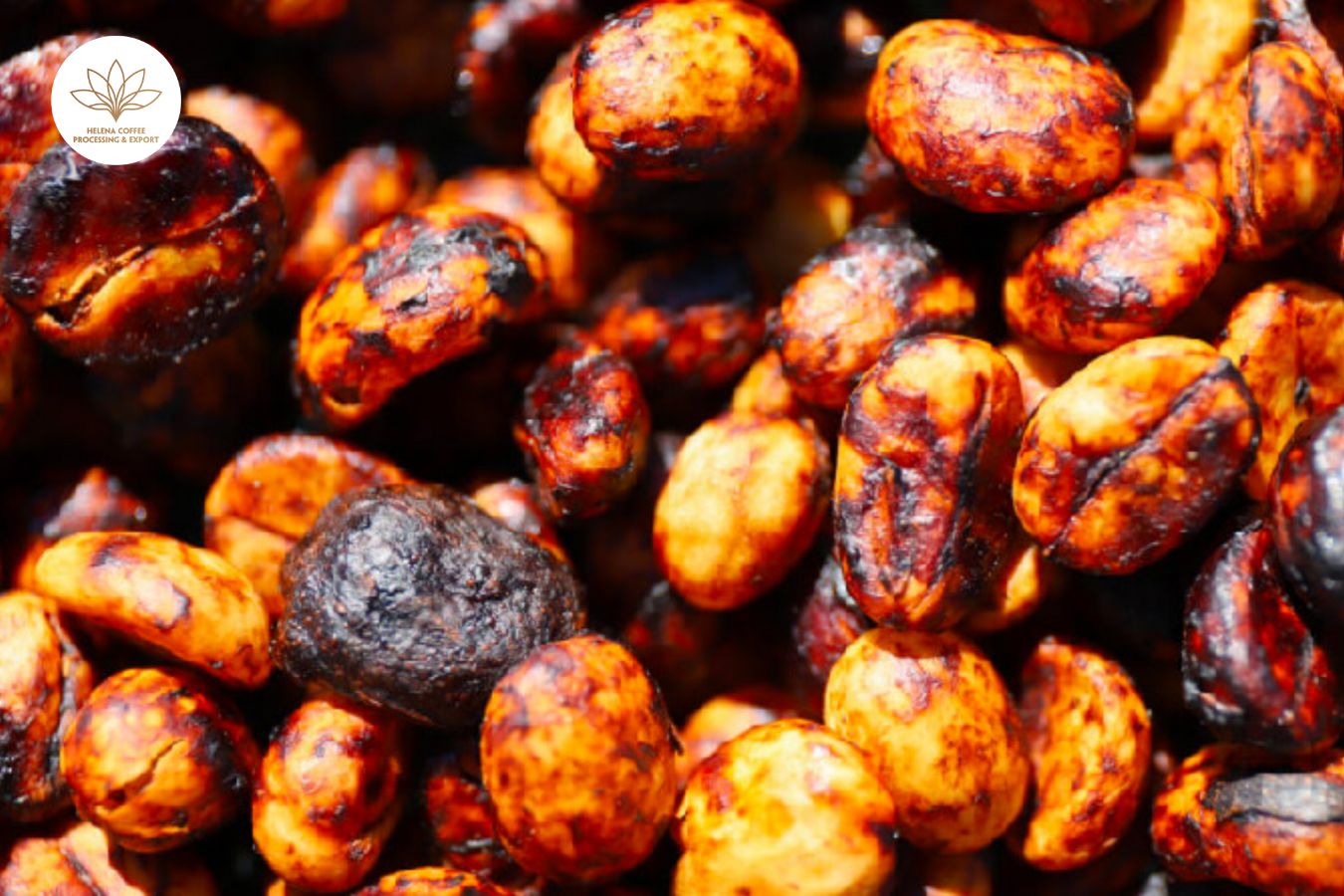
This flavor will permeate every cell and leave an aftertaste long after you have finished. Coffee Robusta Honey Process is ideal for Machine Brewing when combined with Arabica or Drip to enjoy. Robusta Honey coffee attracts men and coffee aficionados with its characteristic bitter flavor and women due to its honey-like sweetness.
2. Wet, dry processing method, honey processing method. Which one is better?
Preliminary coffee processed after harvest is an important stage of coffee cultivation. The processing method significantly influences the taste and quality of coffee beans.
The use of a way that is reasonable and consistent with the characteristics of the eggplant variety is increasingly focused on by suppliers. It is paid attention to by roasters and baristas when choosing products and corresponding extraction methods.
In addition, farmers in many regions have also recently started experimenting with new coffee-processed methods, such as anaerobic fermentation. Let’s explore today’s popular coffee processed methods: dry processing method, honey processing coffee, and Semi-Wet processing method disadvantages.
3. Where to buy Vietnam Robusta honey processing green coffee bean?
With many years of experience in production, processing, and quality management, Helena Coffee Vietnam is proud to be a supplier of high-quality and stable Robusta Red Honey green coffee at a reasonable price.
The successful construction of a closed model from the stage of collection, selection, and preliminary processing to the location of operation, supply, and distribution of products; helps Helena Coffee Vietnam optimize the quality control process and product stability; This makes the products that Helena Coffee Vietnam provides to customers at an excellent price with very high quality.
The creativity in processing methods has created a line of high-quality coffee at affordable prices. That is the unique feature of Robusta Honey green coffee provided by Helena Coffee Vietnam. If interested, please get in touch with us for more information about this line!
FAQs:
- Vietnam honey robusta in the Vietnam coffee market
- Vietnam coffee beans with robusta coffee beans
Certifications


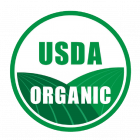
Exploring Vietnam Robusta: Bold Flavor Profile and Unique Taste
Vietnam shines as the top global exporter of robust and flavorful Robusta coffee, with its lush Central Highlands provinces—Kon Tum, Gia Lai, Dak Lak, Dak Nong, and Lam Dong—dedicating around 90% of their coffee fields to this thriving crop.
This bountiful bean also thrives in midland regions like Vung Tau and Dong Nai, known for their high yields. Delve into the aromatic world of Robusta coffee through renowned growing regions such as Pleiku, Ayun Pa, Buon Ho, and the iconic Buon Ma Thuot—celebrated as Vietnam’s coffee capital.
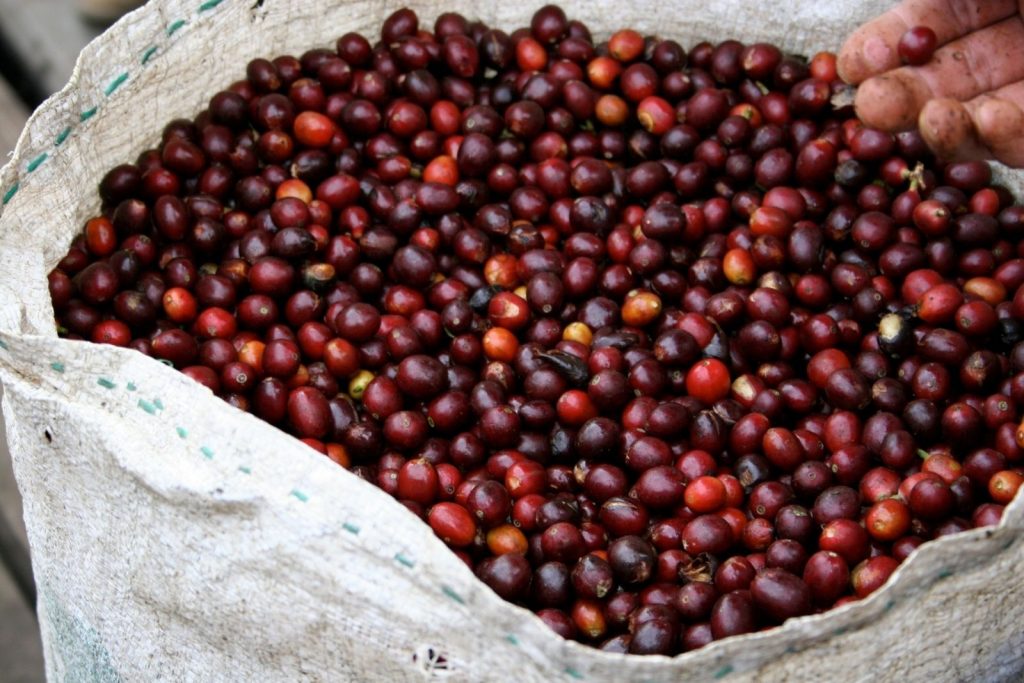
Attitude
Nestled at an elevation of 500m-600m above sea level, the Central Highlands of Vietnam boast rich red basalt soil and a cool, rainy climate—perfect conditions for cultivating exquisite Robusta coffee for centuries. This region’s beans are famed for their potent caffeine content, bold flavors, and low acidity, enticing coffee aficionados worldwide.
Yet, the allure of Central Highlands coffee lies in its unique regional nuances. Some beans enchant with silky notes of butter, oil, or caramel, while others capture the essence of the sun-kissed highlands and crisp mountain breezes. Discover the captivating tastes that have made Central Highlands coffee a cherished treasure for generations.
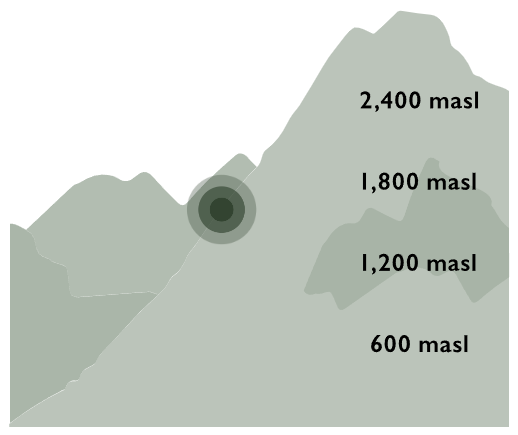
Environment
Climate factors such as precipitation, temperature, and humidity play a crucial role in shaping a coffee’s maturation, overall flavor, and quality. Coffee-producing countries either boast naturally ideal conditions for growth or employ innovative techniques to enhance their ecosystems.
Robusta coffee, in particular, thrives in a harmonious dance with its environment, flourishing under the tender care of nature’s elements. As you indulge in its rich, bold flavors, you’ll savor the exquisite results of this intricate interplay.
Precipitation
500m – 800m
Temperature
17℃
Humidity
71%
Processing
Coffee processing involves separating the bean from the cherry, with popular methods like washed, dry, and honey, among others. Each technique emphasizes different aspects to create unique flavors, inviting you to explore and savor the diverse world of coffee.
Washed
Fully Washed
Dried
Sun-dried
Natural
Fully Washed
Timeline
Harvest and export times are based off when a particular coffee will be at its peak quality. Cherries picked at the start of the harvest season tend to be underdeveloped, and those picked at the end are often overdeveloped, so producers aim for that sweet
Harvest
Export
Dec – Sept
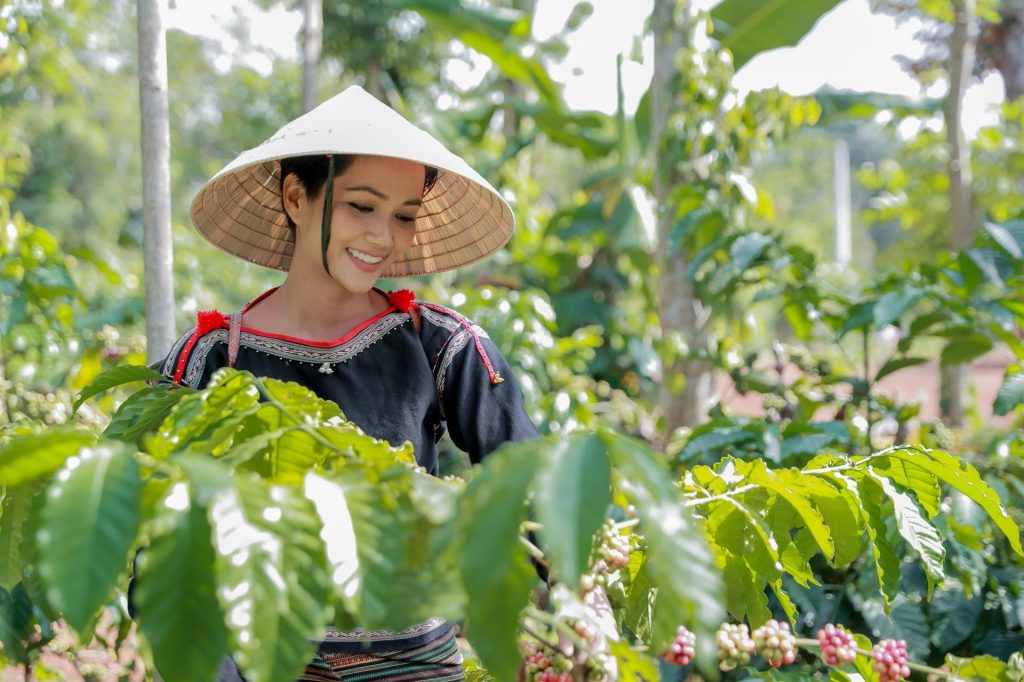
Dak Lak Viet Nam
Dak Lak Province, nestled in Vietnam’s Central Highlands, earns its title as the “capital” of Vietnamese coffee with its sprawling green coffee fields cascading across the region’s basaltic hills, bathed in sunlight and caressed by gentle winds. Home to numerous distinguished coffee brands, Dak Lak’s exceptional beans have captured hearts worldwide, with exports reaching over 80 countries and territories, solidifying its global reputation for exceptional coffee.
